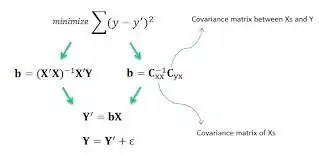Logistic regression (and more generally, GLM) does NOT belong to Machine Learning! Rather, these methods belongs to parametric modeling.
Both parametric and algorithmic (ML) models use the data, but in different ways. Algorithmic models learn from the data how predictors map to the predictand, but they do not make any assumption about the process that has generated the observations (nor any other assumption, actually). They consider that the underlying relationships between input and output variables are complex and unknown, and thus, adopt a data driven approach to understand what's going on, rather than imposing a formal equation.
On the other hand, parametric models are prescribed a priori based on some knowledge of the process studied, use the data to estimate their parameters, and make a lot of unrealistic assumptions that rarely hold in practice (such as the independence, equal variance, and Normal distribution of the errors).
Also, parametric models (like logistic regression) are global models. They cannot capture local patterns in the data (unlike ML methods that use trees as their base models, for instance RF or Boosted Trees). See this paper page 5. As a remediation strategy, local (i.e., nonparametric) GLM can be used (see for instance the locfit R package).
Often, when little knowledge about the underlying phenomenon is available, it is better to adopt a data-driven approach and to use algorithmic modeling. For instance, if you use logistic regression in a case where the interplay between input and output variables is not linear, your model will be clearly inadequate and a lot of signal will not be captured. However, when the process is well understood, parametric models have the advantage of providing a formal equation to summarize everything, which is powerful from a theoretical standpoint.
For a more detailed discussion, read this excellent paper by Leo Breiman.
